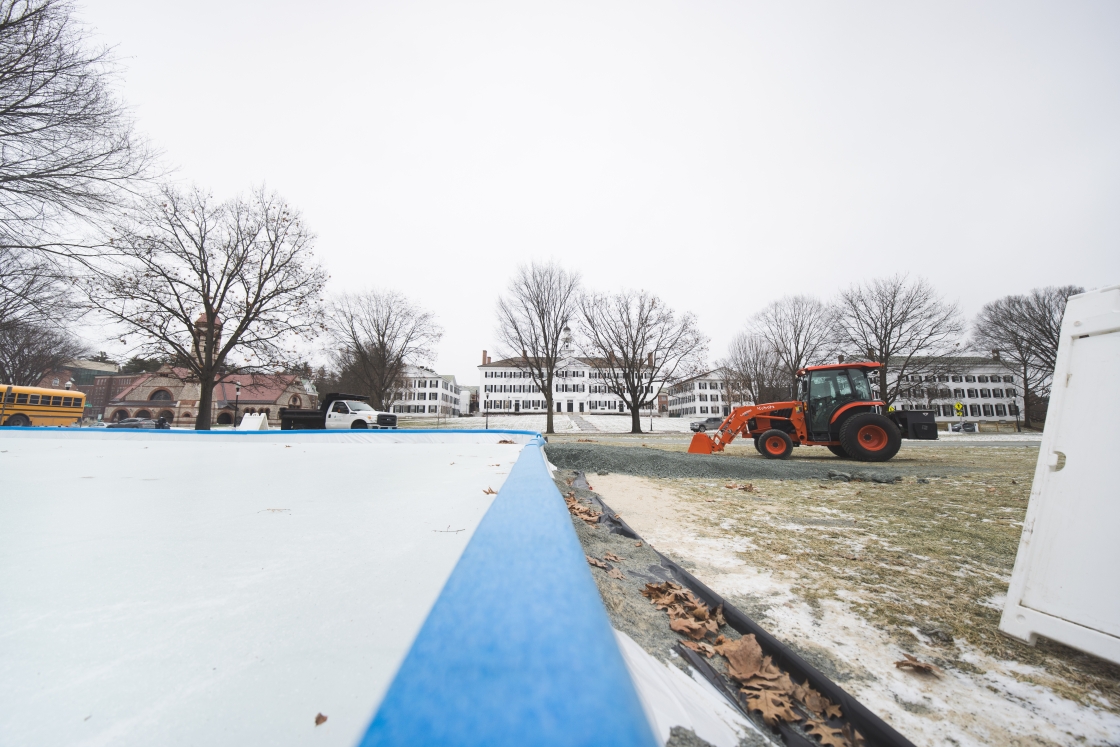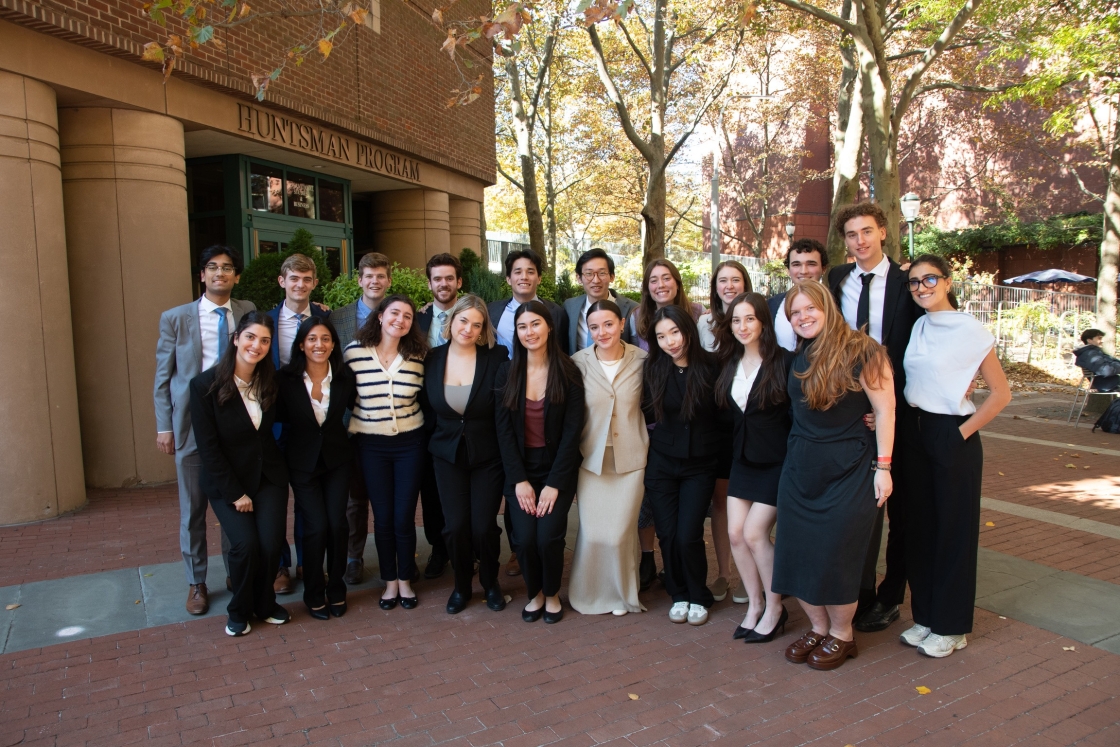In the summer of 2009, Francisco Herrera ’13, the first in his family to attend college, left his home in Miami to begin his first year at Dartmouth.
Francisco Herrera ’13 and Stella Safari ’13, both residents of the Latin American, Latino, and Caribbean Studies (LALACS) house, discuss an upcoming event. As advisor for the house, Herrera plans events, such as a winter term reception for members of La Excelencia, a salsa band that performed at the Hopkins Center for the Arts. (photo by Eli Burak ’00)
Herrera’s parents, Maria Luisa and Francisco Herrera Sr.—both Spanish-speaking immigrants from Nicaragua—had done their best to ensure Herrera was prepared, providing him with new clothes for the winter months and money for books.
But Herrera says, “When I arrived on campus, I had a lot of anxiety and concerns, and it was hard not to feel out of place. I kept wondering—was it strange only to me?”
Herrera found warm welcomes throughout campus, but he was especially pleased to see a sign for first-generation college students that read, “So you got to Dartmouth. Now what?”
Herrera connected with the students who had posted the invitation—among them Micaela Klein ’10 and Andrea Obando ’10. About 9 percent of Dartmouth undergraduates are first-generation college students, and Klein and Obando had formed a group to help them navigate the academic rigor of Dartmouth.
“We wanted to offer something that was more than emotional support for students,” Klein told The Dartmouth student newspaper at the time. So the students—many of whom had not attended college-preparatory high schools—met, shared questions and concerns, and learned more about Dartmouth.
Strong StartIn its two years as a formal program, the Dean of the College’s First-Year Student Enrichment Program (FYSEP) has served more than 60 first-generation college students at Dartmouth. “The program helped me be confident about my place at Dartmouth very early,” says FYSEP participant Jessica Womack ’14, an art history major. “It’s common to struggle your first year, but I didn’t.”
This year, 34 students in the Class of 2015 joined FYSEP. The free, voluntary summer program was offered to about 80 of the 108 first-generation college students in the incoming class, based on factors including the students’ high school experiences.
FYSEP orientation lasts seven days and includes five condensed classes—complete with assignments and exams—taught by Dartmouth professors.
“The faculty involvement is critical to the success of FYSEP,” says Dean of the College Charlotte Johnson. “It’s so valuable for students to receive individual feedback from their future teachers about how they took notes, or prepared for a test.”
Faculty participants in 2011 included Deborah Brooks, assistant professor of government; Jon Kull ’88, associate professor of chemistry; and Bruce Sacerdote ’90, the Richard S. Braddock 1963 Professor in Economics.
Data indicate that FYSEP participants from the Class of 2014 are achieving a GPA .42 points higher than their first-generation peers with similar academic backgrounds who did not participate in the program.
“It’s wonderful that students from a wide range of backgrounds have the opportunity to attend Dartmouth,” says Johnson. “But we also want to make sure they have the tools and support they need to be successful.”
“Looking back,” says Herrera, “I appreciate even more how important that outreach was. It showed me that it was OK to ask the basic questions, like ‘What’s the Registrar?’ or ‘What are office hours?’ or even ‘What’s sociology?’ Knowing that what I was feeling wasn’t my own perception, but something that was real, was very reassuring.”
Now a junior, Herrera is giving back the same support that he received. In addition to serving as the advisor for the Latin American, Latino, and Caribbean Studies (LALACS) house, he is a mentor for Dartmouth’s now-formal First-Year Student Enrichment Program (FYSEP).
In the past two years, he has mentored four FYSEP students—from Arizona, California, New York, and Texas—and he regularly meets with his two current mentees for lunch and exchanges emails and text messages with them. Herrera also spends about 10 hours a week working with Liz Agosto ’01, special assistant to the dean of the College, to further develop FYSEP.
Academically, Herrera debated between majoring in history and chemistry. He eventually decided on the latter, due in part to the enthusiasm of chemistry professors Gordon Gribble and Jon Kull ’88.
Herrera particularly enjoyed an eight-week lab section taught by Kull, who Herrera says “shows you how to put the textbook into a flask.” Now with plans to become a doctor, Herrera has his eye on a Johns Hopkins University program that supports minority students pursuing an MD or PhD.
Today, as Herrera sits in the Collis Center wearing a Dartmouth T-shirt, he is clearly confident and comfortable—a far cry from the person who once “felt out of place” on campus. Following an interview, he heads off to find a first-year student, a participant in FYSEP, who had contacted him.
“I just want to say hi, and see if she needs anything,” he says.

